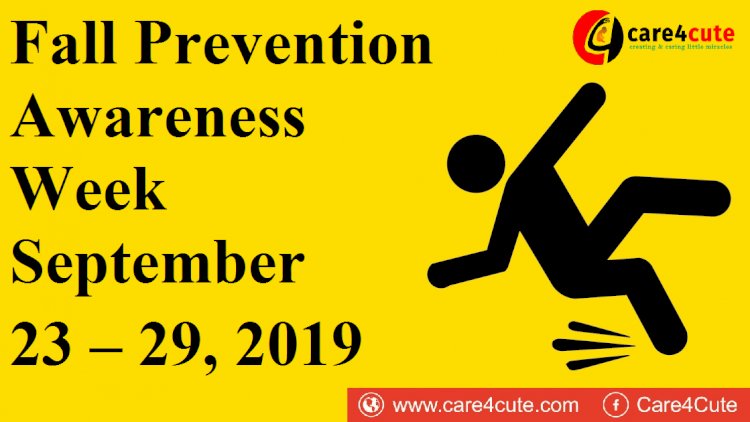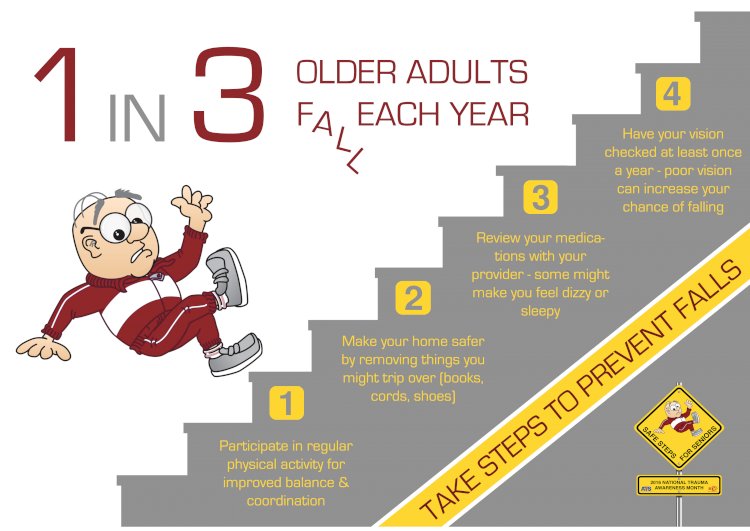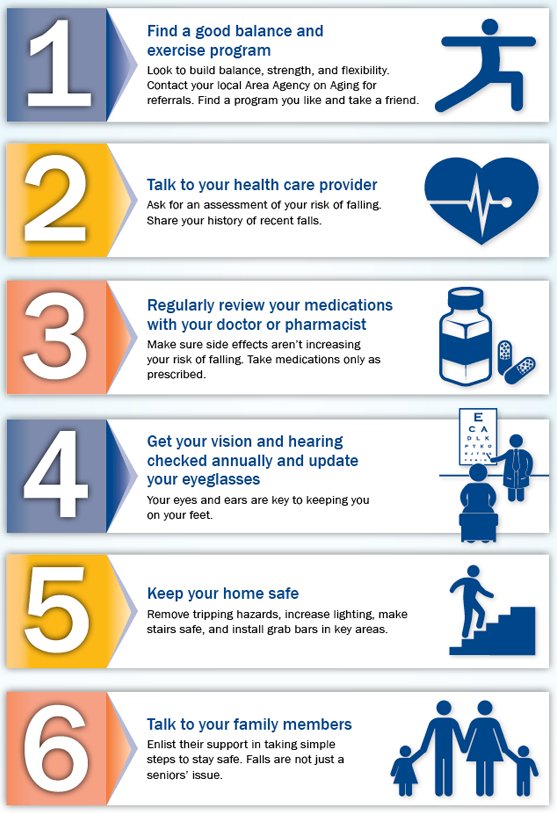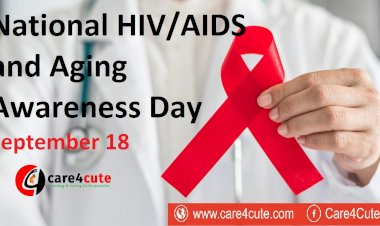Fall Prevention Awareness Week - September 23 – 29, 2019
Fall Prevention Awareness Week - September 23 – 29, 2019 At the heart of this initiative is the message that falls are preventable.

The annual Falls Prevention Awareness Week (FPAW) which is observed in September 2019 from 23rd to 29th raises awareness about how to prevent fall-related injuries among older adults.
Among older people, falls are the foremost reason of injury deaths, accidental injuries, and hospital admissions for trauma. To distinguish this serious concern, at the state level, SCR 77 (D-Lowenthal) was passed in 2008 declaring the first week of Fall each year as Fall Prevention Awareness Week.
Why celebrate Falls Prevention Awareness Week/ Day
Falls are the most important reason for injury-related emergency department visits by aged people, which is the main cause of hip fractures, and responsible for more than half of fatal head injuries. Several states and countries globally are now coalescing to address this growing public health issue among older adults; many are working closely with occupational therapy practitioners as key contributors to reducing falls.
Falls Prevention Awareness Week/ Day 2019 Theme
This year's theme, Take a Stand to Prevent Falls, seeks to unite professionals, older adults, caregivers, and family members to play a part in raising awareness and preventing falls in the older adult population. 48 states participated in Falls Prevention Awareness Day last year, joining more than 70 national organizations, including the American Occupational Therapy Association, other professional associations, and federal agencies that comprise the Falls Free© Initiative.

How to avoid fall-related injuries among aged people: -
- Use community transportation resources — from buses and taxis to senior transport services
- Keep the entrances to their homes brightly lit, clean, and free of clutter
- Ensure all steps, stair rails, and porch flooring are in good repair
- Hire reliable help to clear their sidewalks and entry areas of snow and ice (and tell them to keep plenty of rock salt on hand)
- Consider where they’re going before leaving, picture obstacles and hazards they might encounter, and prepare for them
- Give themselves plenty of travel time
- Travel with friends or relatives
- Wear sunglasses in the daytime to prevent glare, which is a major cause of falls
- Wear proper non-rubber soled shoes, rather than flip-flops or high heels
- Make use of adaptive and protective equipment like walkers and hip pads
- Let friends, family members, or neighbors know where they’re going and what time they expect to return
- Carry cell phones and medical alert devices

When outside, patients should:
- Try to move more deliberately — paying attention to movements they make that might cause them to fall. Suggest that they take stairs slowly and think ahead.
- Slow down and look ahead, avoiding problem areas
- Avoid uneven or slippery terrain
- Use handrails whenever they are available
- Watch out for slippery flooring, especially polished surfaces
- Wear a shoulder bag or fanny pack so they can keep both hands free in the case of a slip
- Be mindful of invisible curbs with deceptive heights and angles
- Get motion-detector lighting installed to ensure they automatically have enough light when needed
- Have keyless entry locks installed on their doors or keep garage door remote controls handy

 Sangeeta Jain
Sangeeta Jain 

































Comments (0)